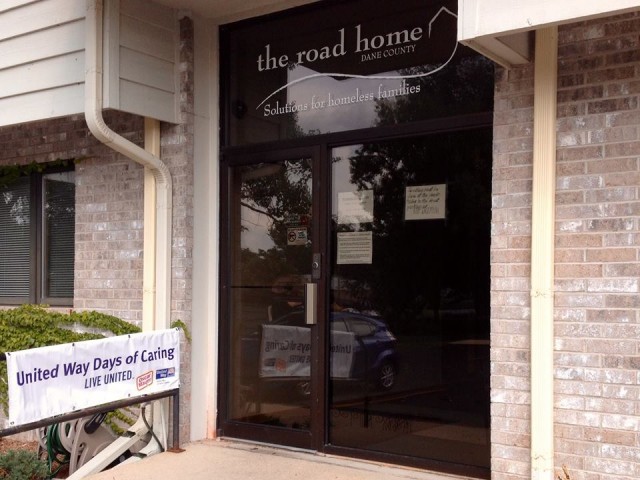Access to quality education is at risk for housing-insecure children in Madison as their families face the economic blowback of COVID-19 and the end of an eviction moratorium looms.
Governor Evers announced a $30 million CARES Act fund on Sept. 3, which directs $25 million towards the Wisconsin Rental Assistance Program. The next day, the Centers for Disease Control and Prevention announced a national eviction moratorium in an effort to mitigate the spread of COVID-19. However, come Dec. 31, families will be required to pay their accumulated rent. If they are unable to do so, they will be evicted, putting children’s access to quality remote learning at risk.
Although Congress is currently in talks over another relief bill, disagreements between Democrats and Republicans have stalled progress. If a bill is not passed before the new year, the eviction moratorium will be lifted.
“We’re delaying the swell that we think unfortunately might happen in evictions and losing housing because of the economic constraints of living in COVID,” said Sarah Ceponis, a strategist at The Road Home, an organization that helps Madison families leaving the shelter system obtain housing.
Torrie Kopp Mueller, Community of Care Coordinator of the Homeless Services Consortium for the City of Madison, expressed a similar worry.
“There is a lot of concern about what happens come January 1,” she said via email. “We are anticipating that many evictions will be filed.”
In May, Dane County and the Tenant Resource Center created a $10 million eviction fund to mitigate the effects of the pandemic on access to housing. Melissa Sorensen, Executive Director of Social Services for the Salvation Army, said that the money has already run out. Sorensen said that she has seen an increase in demand for shelter over the course of the pandemic.
“We typically used to serve 22 families a night in our shelter and we have been close to more like 60,” Sorensen said.
Pre-COVID-19, the Salvation Army’s emergency shelter was located on East Washington Avenue, but families have been moved to hotel rooms to accommodate for social distancing. About 60 families are currently staying in hotel rooms, and the Salvation Army is preparing to bring families back onsite in June 2021.
“The hope at this time for our system, pending funding approval, is that we’ll be able to prioritize health precautions and maintain social distances by keeping sheltered families in hotels,” Ceponis wrote in an email.
Remote learning has proved challenging for families living in hotel rooms, and the Madison Metropolitan School District (MMSD) has made efforts to improve the situation. The Transition Education Program specifically provides resources to help students experiencing homelessness. MMSD supplies devices like iPads and computers that students need to access their classes. They are given hotspots if they have an unstable connection or do not have internet access. However, Liz Gerber, a Rapid Rehousing Advocate at The Road Home says hotspots have been unreliable.
“Obviously this creates a disruption in the children’s learning as well as adds stress to the parents,” Gerber said via email.
On top of learning to navigate new technology, finding space to learn in a hotel room can be difficult.
"Hotel rooms are small spaces without room for movement,” Kopp Mueller wrote. “Kiddos are sleeping in their bed, eating meals on their bed and doing virtual learning on their bed. There could be 3 kids in one family all trying to do Zoom meetings at the same time in that small space. Essentially, they are spending all day in one spot.”
Gerber also spoke to the issue of having more than one child in the same room and the effect on remote learning.
“A challenge that families with more than one child have been facing is having everyone, in different grade levels, in one room trying to learn. The activities and rigor of learning aren’t necessarily equivalent, which can cause distractions,” she wrote.
Parents also might be working in the same room, or have to go to work in-person and find someone to look after the kids and assist with remote learning. Ceponis noted that many families do not have the luxury of working from home.
“It’s not a lot of jobs necessarily that are working from home behind a computer,” Ceponis said. “That’s sort of a privilege that as staff we’ve been able to have, but not necessarily something that our families are able to do, so they are more at risk of being affected by COVID directly.”
There are daycare options for children during the day if their parents are working, but parents are forced to choose if it is worth the risk of exposure to COVID-19. Ceponis spoke to the compounding effects of housing insecurity on children’s education.
“There’s higher absentee rates for students that are not housing secure, there’s higher rates of being sick or hungry,” Ceponis said. “All these things make it hard for a student to be in the classroom and learn.”
In addition, students experiencing housing insecurity are less likely to graduate high school, even if they experienced homelessness as far back as elementary school.
All of these factors place education and access to remote learning for children at risk. As the end of the eviction moratorium approaches, the situation will likely worsen with a rise in evictions.
“When we add the layer of being housing unstable and also not having that classroom to be in as a safe and steady grounding place, we’re just concerned that the effects, the gaps will grow for students that have already had disruptive learning because of their moves,” Ceponis said. “Now they have disruptive learning because they’re not in a classroom at all.”
Despite the issues of housing insecurity brought by the COVID-19 crisis, Ceponis said that fewer families have been on waiting lists and that they are finding more housing than in September.
“We have felt some positive momentum at the moment,” she wrote.





